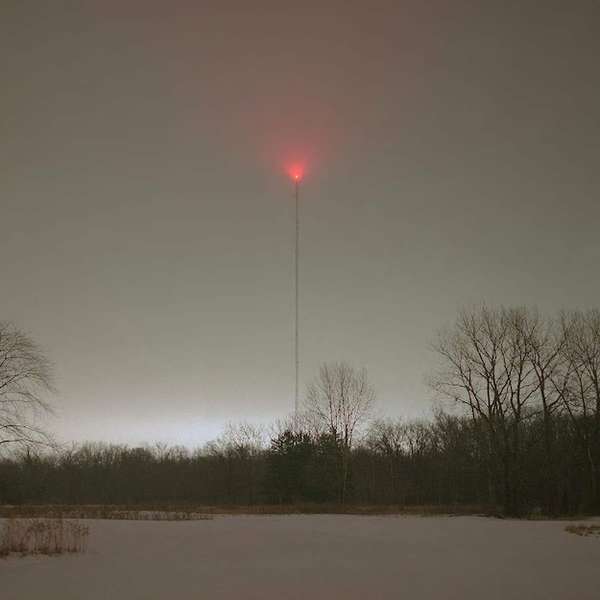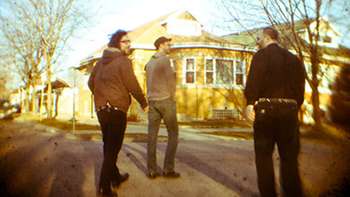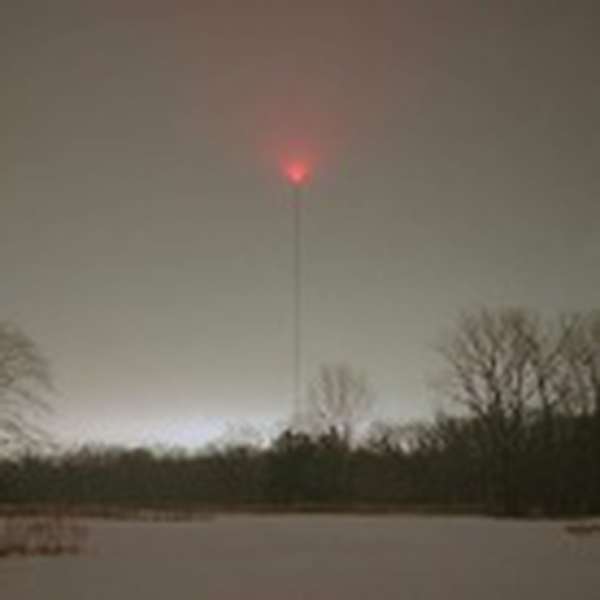One of the wisest moves you can make when your band lies within the ambient music scene is to construct a certain aura for it that will attract the prospective listener before he even hears a single note from your band; the easiest way to attract attention comes from the very name of the band. Ande Foisy (of Locrian,) Mike Weis (of Zelienople) and Neil Jendon kick started this project and named it Kwaidan, either after the Japanese collection of ghost stories or the 1964 film that brought four of these stories on the big screen. One way or the other Kwaidan immediately attract your interest and set the atmosphere for the album at the same time.
The first three tracks of the record act like a triptych. “The Empty Rooms of Light and Space” is by far the darkest moment of the album. “Evening Bell” first makes the introduction, with a background of ambient sounds and feedback being introduced on top of which cymbal hits are brought forth from the darkness while solitary drum hits give more tension to the music, foreseeing an imminent eruption that never comes. “Gateless Gate” soon follows, making the whole experience more intense, with an almost tribal like drumming, and with a magnificent drone solitary melody that remains hidden on the background. The trance under which Kwaidan puts the listener reaches its most terrifying depths with the conclusion of the trilogy. “Ostension” grows darker by the second, and the descent into the shadows involves weird, twisted effects that resemble (what I would imagine to be) alien communication near the end.
At this point you will think that you will be brought into the light. You are sadly mistaken. The following track, “The Iceberg And Its Shadow” might not be as dark as the initial trilogy of the album but it is equally disturbing. The bleakness here is replaced with a freezing quality that mesmerizes you completely, an inescapable hallucination that can be daunting and pleasant at the same time. “Space as Support” actually is the very first moment when Kwaidan allows you to breath with some ease, it is a much more melodic offering, still quite heavy ambient-wise with the ritualistic drumming and the synths but the melodies are overwhelming in this track.
And when the time comes for Kwaidan to put this album to rest, they do it in the most appropriate way imaginable. The closing track of the album, “The Sound of This Bell” in a way transcends the album itself. Following in the same vein as “Space as Support,” it is where Kwaidan unite darkness and light, melody and dissonance. And in doing so they raise this twelve-minute opus, constantly transforming it, once again with melodic guitar parts on top of the chaotic noise background and the abstract rhythms. Especially the last five minutes of the track where Kwaidan allow their noise self to take over almost completely unleashing an imposing wall of sound in the process, before they deconstruct the song and slowly fade out.
As is the case with the Kwaidan stories, this album is better experienced as a whole rather than by its individual moments. One of the stories of the Kwaidan collection tells about a blind musician, who was being tricked by spirits to perform his music for them. The first time I listened to Make All The Hell of Dark Metal Bright, I thought that Kwaidan fashioned themselves to be the blind musician, but after a few listens to this album I came to the realization that they resemble much more the spirits luring the listeners to come into their world. Therefore, consider yourselves forewarned because this album can act like a gateway to very strange destinations.







